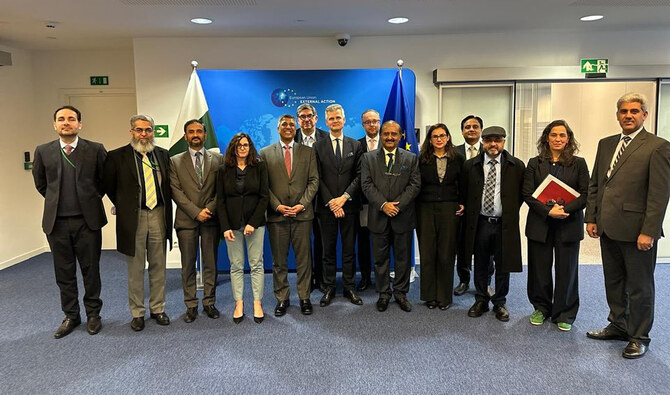ISLAMABAD: Pakistan and the European Union (EU) have jointly urged the Afghan interim authorities to take concrete and effective measures against terrorist groups operating from Afghan soil. The call was made in the declaration issued after the seventh Pakistan-EU Strategic Dialogue.
The meeting was co-chaired by Deputy Prime Minister and Foreign Minister Senator Ishaq Dar and EU High Representative and Vice President Kaja Kallas.
The dialogue reviewed a wide range of bilateral, regional, and global issues while confirming both sides’ commitment to a strong and forward-looking partnership.
Furthermore, the two sides expressed concern over border tensions that emerged in October between Pakistan and Afghanistan, underlining the need for sustained dialogue to promote regional peace and stability.
They mentioned the worsening economic conditions in Afghanistan and stressed that peace, stability, and an inclusive political process remain vital for the wider region.
The EU also acknowledged Pakistan’s role in hosting millions of Afghan refugees for more than four decades and reasserted that any repatriation must be voluntary, safe, dignified, and in line with international norms.
Pakistan and the EU discussed the situation in Gaza and welcomed progress on the initial phase of an agreed plan aimed at securing a ceasefire.
In this sense, both parties emphasized the importance of implementing all stages of the agreement, ensuring humanitarian access, and supporting reconstruction efforts.
They renewed their backing for a two-state solution as the foundation for lasting peace in the Middle East. The dialogue also reviewed ongoing cooperation under the 2019 Strategic Engagement Plan (SEP).
In addition, both sides agreed to increase collaboration in areas including political dialogue, economic cooperation, human rights, trade, migration, and development initiatives, particularly under the EU’s Global Gateway framework.
They underlined the importance of strengthening trade and investment ties, noting that the EU’s GSP+ scheme plays a crucial role in Pakistan’s export-driven growth and job creation.
Meanwhile, broader geopolitical developments ranging from South Asia and the Middle East to global challenges such as climate change and connectivity were also discussed.
The declaration noted plans to expand academic and research exchanges through programmes such as Erasmus Mundus and Horizon Europe. Pakistan and the EU also committed to working jointly to address emerging challenges, including food security, energy shortages, and climate-related risks.





